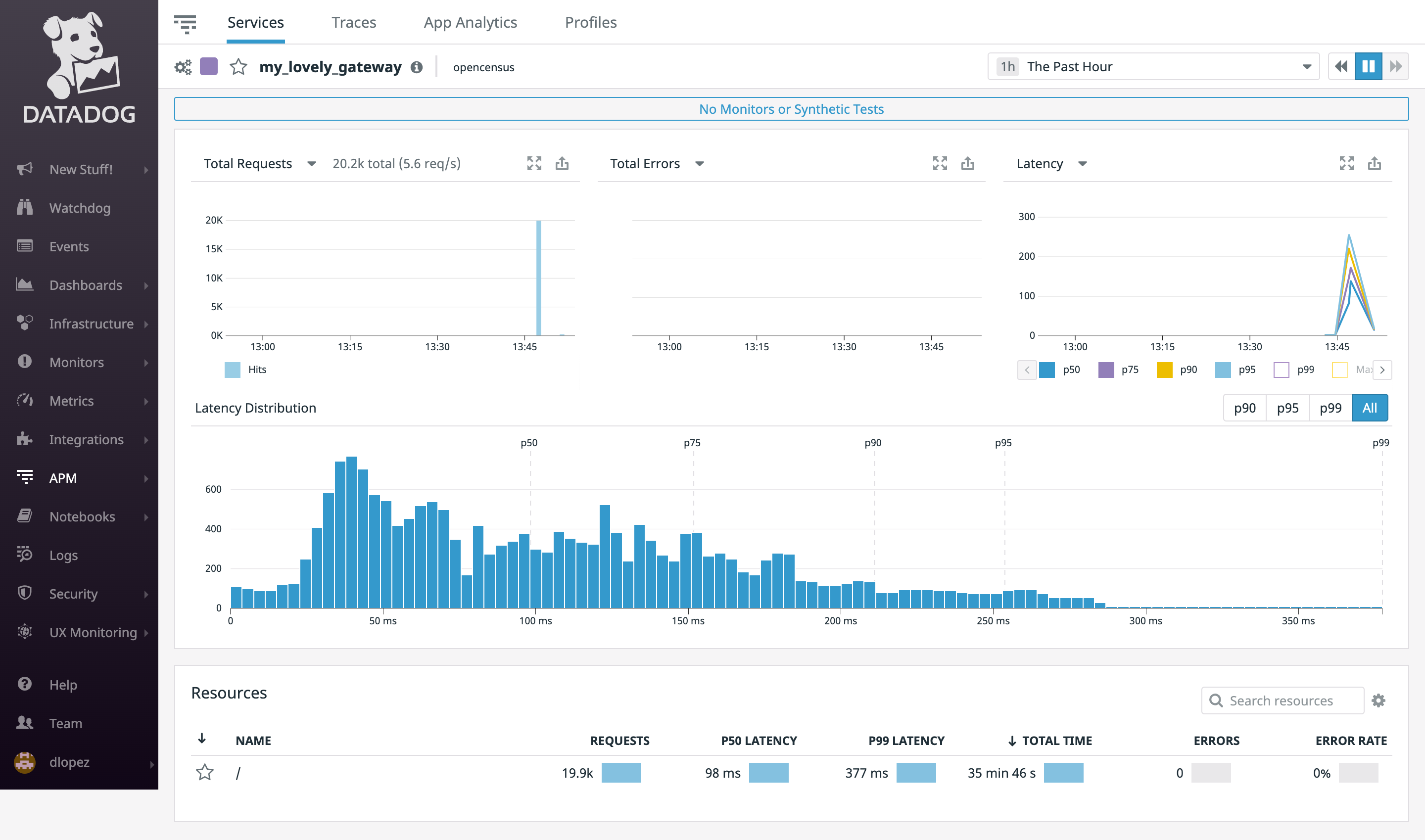Community Documentation
Exporting traces to Datadog
Document updated on Oct 24, 2022

About this feature
| Since | v1.2 |
|---|---|
| Namespace | telemetry/opencensus |
| Log prefix | [SERVICE: Opencensus] |
| Scope | service |
| Source | krakend/krakend-opencensus |
Datadog is a cloud monitoring and security platform for developers, IT operations teams, and businesses.
Datadog configuration
The Opencensus exporter allows you to export data to Datadog. Enabling it only requires you to add the datadog exporter in the opencensus module.
The following configuration snippet sends data to your Datadog:
{
"version": 3,
"extra_config": {
"telemetry/opencensus": {
"sample_rate": 100,
"reporting_period": 0,
"exporters": {
"datadog": {
"tags": [
"gw"
],
"global_tags": {
"env": "prod"
},
"disable_count_per_buckets": true,
"trace_address": "localhost:8126",
"stats_address": "localhost:8125",
"namespace": "krakend",
"service": "gateway"
}
}
}
}
}
As with all OpenCensus exporters, you can add optional settings in the telemetry/opencensus level:
Fields of "telemetry/opencensus"
| Lets you specify what data you want to export. All layers are enabled by default unless you declare this section.
| ||||||
| The number of seconds passing between reports. If duration is less than or equal to zero, it enables the default behavior of each exporter. Defaults to 0 | ||||||
| A number between 0 (no requests at all) and 100 (all requests) representing the percentage of sampled requests you want to send to the exporter. Sampling the 100% of the requests is generally discouraged when the relationship between traffic and dedicated resources is sparse. Defaults to 0 |
Then, the exporters key must contain an datadog entry with the following properties:
Fields of "telemetry/opencensus": { "exporters":{} }
| Datadog is a monitoring and security platform for developers, IT operations teams and business in the cloud.
|
B3 propagation
The Opencensus module uses B3 style propagation headers, while the rest of your services might be using datadog-specific propagation headers. If this difference is actual, krakend traces will show up in Datadog but they won’t be connected to the frontend and backend traces.
The ddtrace-run adds an option to support B3 style propagation using the environment variables DD_TRACE_PROPAGATION_STYLE_EXTRACT and DD_TRACE_PROPAGATION_STYLE_INJECT. Use these variables to have your traces perfectly aligned.
For more information see its configuration.